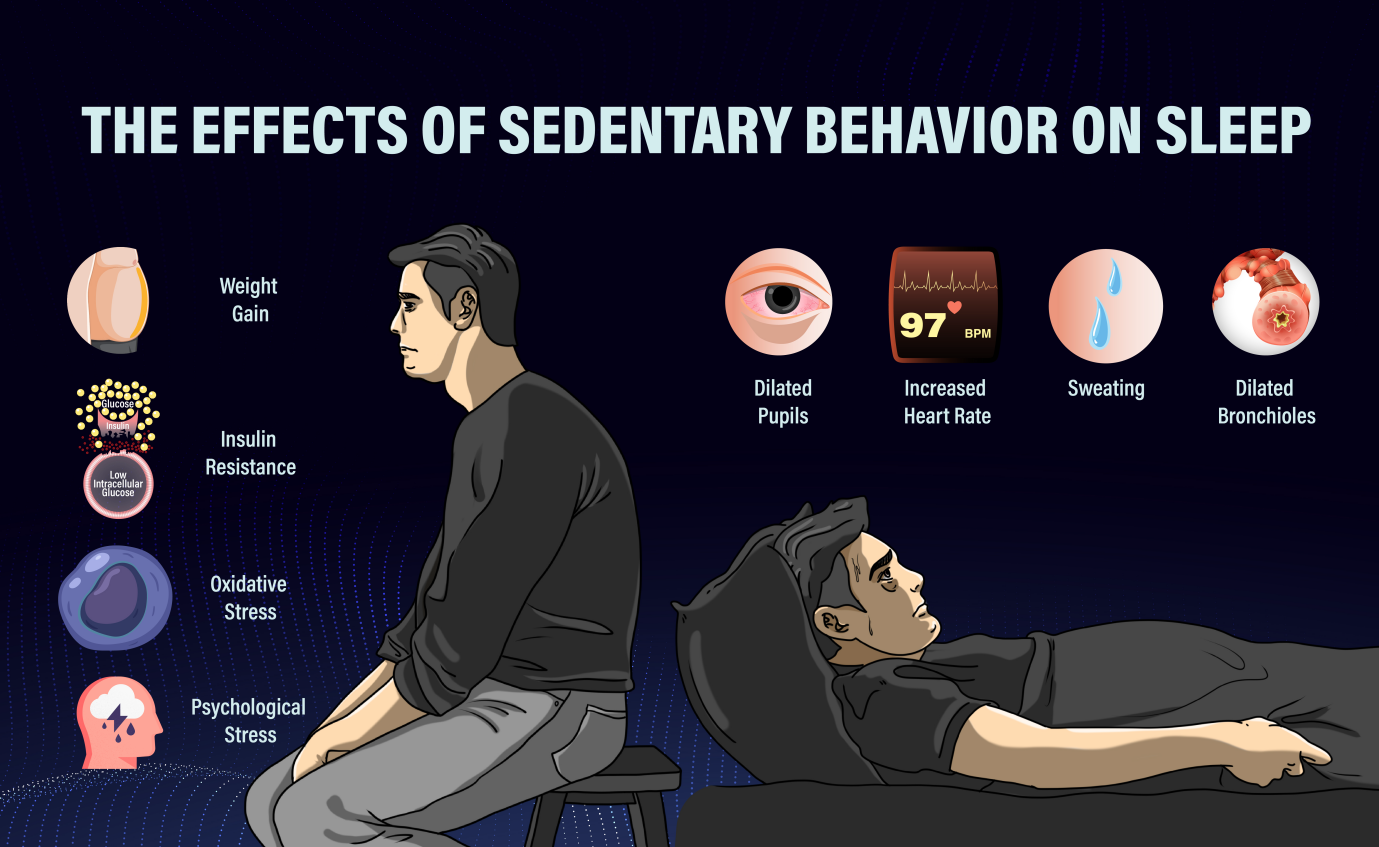Sedentary behavior has been linked to increased inflammation and sleep disturbance in a major new study — but exercise can help on both fronts, according to Tsinghua researchers.
Spending long periods sitting or lying down may lead to increased inflammation in the body, resulting in poorer quality sleep, Tsinghua University researchers have found1.
“But regular exercise appears to mitigate this negative impact, particularly in groups that spend more than eight sedentary hours a day,” says Xindong Ma, lead author on a paper reporting the find in Frontiers in Immunology, and a researcher in the Division of Sports Science and Physical Education.

Some of the effects of sedentary behavior — such as weight gain, insulin resistance, oxidative stress, and psychological stress — can lead to increased inflammation in the body, resulting in the activation of the sympathetic nervous system during sleep.
The new study is one of the first large, population-based studies to explore the association between exercise and inflammation, write the authors. Their research looked at data from 22,599 participants of the National Health and Nutrition Examination Survey (NHANES), a United States-based program that tracks the health and nutritional status of adults and children.
In this population, the sleep disturbance affected a little more than 24%. The study found that: more sedentary time was associated with a higher incidence of sleep disturbances; more exercise time was associated with a lower incidence of sleep disturbances; and that exercise mitigated sleep disturbance in the severely sedentary group.
Implications focused
The researchers looked at data collected from 2007 to 2014, which was adjusted to remove the influence of factors, such as age, sex, race or ethnicity, body mass index, marital status, education and poverty, smoking status, and alcohol use.
Of particular interest to the researchers were blood-cell-based inflammatory biomarkers, such as white blood cell (WBC) count, neutrophil count (NEU), neutrophil-to-lymphocyte ratio (NLR), and the systemic immune inflammation index (SII). These indicate the immune system’s level of activity — for example, in general, a high white blood cell or neutrophil count may signal infection or inflammation, as these cells are involved in the body’s defences against pathogens. A high lymphocyte count and a low neutrophil-to-lymphocyte ratio may provide insights into the balance between inflammation and the immune response, indicating the level of regulation of immune system activity.
The group found that indicators of inflammation were positively correlated with marked sedentary behavior and also sleep disturbance.
Sedentary behavior might promote inflammation through a combination of factors, Ma argues. These include weight gain, obesity, insulin resistance, dysregulated immune response, oxidative stress, a dysfunctional metabolism, and psychological stress. These factors collectively contribute to a pro-inflammatory state, he says.
Inflammation, in turn, may affect sleep by activating the sympathetic nervous system, says Ma. This controls the fight-or-flight response, and acts in opposition to the parasympathetic nervous system, which controls rest and digest.
As for the mitigating effects of exercise, an exercise-induced cytokine response, which is predominantly an anti-inflammatory response, may explain part of the increased quality of sleep in those that were more active, say the authors.
Treating sleep
The study highlights the potential of using blood-cell-based inflammatory biomarkers to identify sleep disturbance linked to sedentary behavior, says Ma. Future research could explore interventions targeting inflammatory pathways, he adds.

Xindong Ma's team at the Division of Sports Science and Physical Education at Tsinghua University.
Governments should take note of the importance of promoting physical activity, he says. Research from the United States suggests that the impacts of poor sleep could cost as much as $3,400-5,200 USD (more than 20,000 CNY) per person per year in additional healthcare costs.
“March 21 is World Sleep Day, and it is hoped that this study will encourage more people to do exercise to promote healthy sleep,” says Ma.
Reference
1. You, Y., Chen, Y., Fang, W., Li, X., Wang, R. et al. The association between sedentary behavior, exercise, and sleep disturbance: A mediation analysis of inflammatory biomarkers Frontiers in Immunology 13, 1080782 (2023). doi: 10.3389/fimmu.2022.1080782